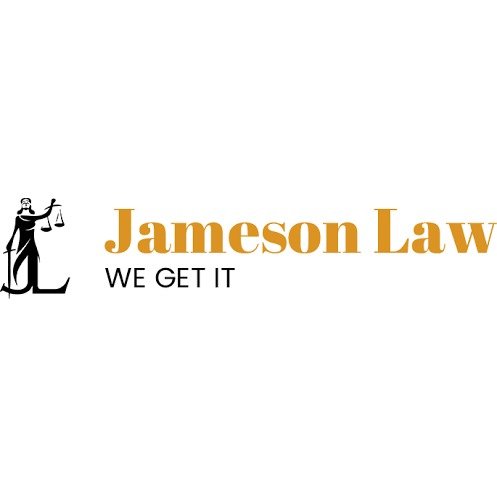
Best Collaborative Law Lawyers in Parramatta
Share your needs with us, get contacted by law firms.
Free. Takes 2 min.
Free Guide to Hiring a Family Lawyer
List of the best lawyers in Parramatta, Australia

About Collaborative Law in Parramatta, Australia
Collaborative Law in Parramatta is a process where both parties involved in a legal dispute work together to find a resolution without going to court. It involves open communication, transparency, and a commitment to reach a mutually beneficial agreement. Each party has their lawyer who guides them through the process and helps facilitate negotiations.
Why You May Need a Lawyer
You may need a lawyer in Collaborative Law in Parramatta if you are involved in a family law matter, such as divorce, child custody, or property settlement. A lawyer can help protect your rights, provide legal advice, and ensure that your interests are represented during negotiations.
Local Laws Overview
In Parramatta, Collaborative Law is governed by the Family Law Act 1975. This legislation outlines the responsibilities of parties in a collaborative process, including full disclosure of information, acting in good faith, and adhering to the decisions made during negotiations. It is essential to understand these laws to navigate the collaborative process effectively.
Frequently Asked Questions
What is the difference between Collaborative Law and mediation?
Collaborative Law involves both parties having their lawyers present during negotiations, while mediation typically has one neutral mediator facilitating discussions between the parties.
Can I use Collaborative Law for all types of legal disputes?
Collaborative Law is commonly used for family law matters, but it can also be used for other civil disputes, such as business disagreements or estate planning.
How long does the Collaborative Law process take?
The length of the Collaborative Law process varies depending on the complexity of the case and the willingness of both parties to reach an agreement. It can take several months to over a year to resolve a dispute through collaboration.
What happens if we cannot reach an agreement through Collaborative Law?
If an agreement cannot be reached through Collaborative Law, the parties will need to seek alternative dispute resolution methods or go to court to resolve their legal dispute.
Do I have to attend court if I use Collaborative Law?
If you reach a mutually acceptable agreement through Collaborative Law, you may not need to attend court. However, if the agreement needs to be formalized legally, it may be necessary to attend court for approval.
Is Collaborative Law confidential?
Yes, the Collaborative Law process is confidential, and information shared during negotiations cannot be used in court if the process is unsuccessful.
How much does Collaborative Law cost?
The cost of Collaborative Law depends on the complexity of the case and the number of sessions required to reach an agreement. It is often cheaper than going to court but can still be a significant expense.
Can I switch to a traditional litigation process if Collaborative Law is not working?
If the Collaborative Law process is unsuccessful, you can choose to pursue traditional litigation to resolve your legal dispute. However, you will need to hire a new lawyer to represent you in court.
What are the benefits of Collaborative Law over traditional litigation?
Collaborative Law allows parties to maintain control over the outcome of their dispute, encourages open communication, and promotes cooperation to find a resolution. It can also be less time-consuming and costly than traditional litigation.
How do I find a Collaborative Law lawyer in Parramatta?
You can search online for Collaborative Law practitioners in Parramatta or ask for recommendations from friends, family, or other legal professionals. Ensure that the lawyer you choose has experience in collaborative processes and is a member of a relevant professional organization.
Additional Resources
For more information on Collaborative Law in Parramatta, you can visit the Collaborative Professionals NSW website or contact the Parramatta Local Court for resources and guidance on legal matters.
Next Steps
If you are in need of legal assistance in Collaborative Law in Parramatta, it is essential to contact a qualified lawyer who specializes in this area of law. They can provide you with guidance on your rights, options, and how to proceed with your legal matter using the Collaborative Law process.
Lawzana helps you find the best lawyers and law firms in Parramatta through a curated and pre-screened list of qualified legal professionals. Our platform offers rankings and detailed profiles of attorneys and law firms, allowing you to compare based on practice areas, including Collaborative Law, experience, and client feedback.
Each profile includes a description of the firm's areas of practice, client reviews, team members and partners, year of establishment, spoken languages, office locations, contact information, social media presence, and any published articles or resources. Most firms on our platform speak English and are experienced in both local and international legal matters.
Get a quote from top-rated law firms in Parramatta, Australia — quickly, securely, and without unnecessary hassle.
Disclaimer:
The information provided on this page is for general informational purposes only and does not constitute legal advice. While we strive to ensure the accuracy and relevance of the content, legal information may change over time, and interpretations of the law can vary. You should always consult with a qualified legal professional for advice specific to your situation.
We disclaim all liability for actions taken or not taken based on the content of this page. If you believe any information is incorrect or outdated, please contact us, and we will review and update it where appropriate.









